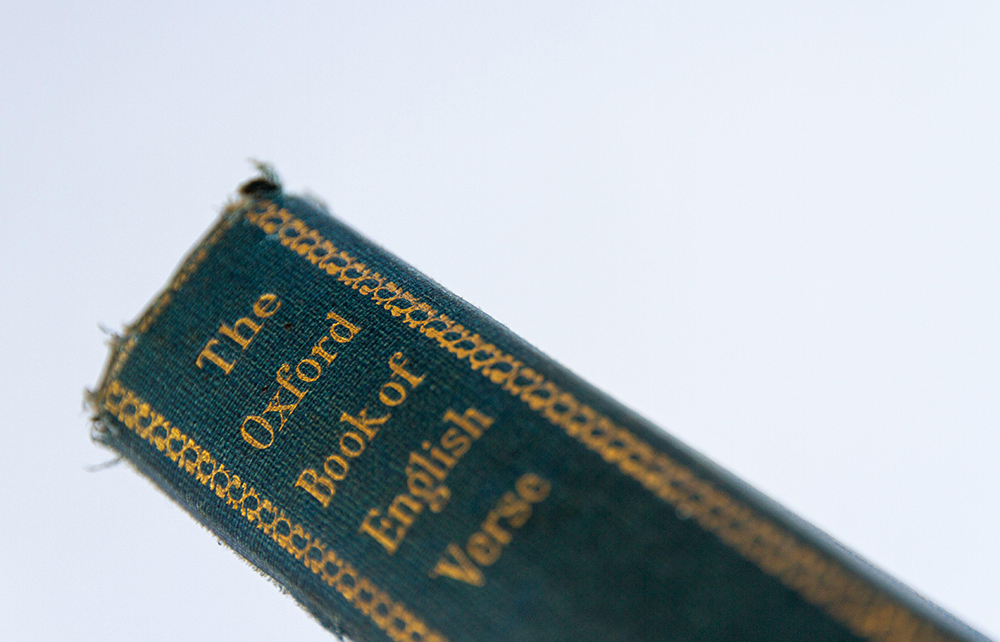Francis Palgrave, the founder of the Public Record Office, didn’t like having his version of the past parcelled in neat gobbets. In his History of Normandy and England, he described anthologies as ‘sickly things’, adding that ‘cut flowers have no vitality’. His son, Francis Turner Palgrave, differed fundamentally, and, with Alfred Tennyson’s help, gathered what is still the greatest collection of English lyric poetry, The Golden Treasury, which sold 10,000 copies in six months after its publication by Macmillan in 1861 and, according to Clare Bucknell in this delightfully engaging survey of verse anthologies, had shifted 650,000 copies by 1939 and must surely now be hitting the million mark.
Having worked in adult education, Palgrave junior pitched The Golden Treasury as an improving text for inquisitive, aspirational Victorians. He also genuinely wanted to introduce them to the wide range of English poetry, providing imaginary landscapes from Shakespeare’s Arden to Scottish border ballads. As the American Robert Frost stated on moving his family across the Atlantic in 1912: ‘I said I had come to the land of The Golden Treasury. That is what I came for.’
Should anthologies be a showcase for the best? Or does that approach snuff out individuality?
Frost’s fellow countryman, the combative Ezra Pound, disagreed, describing Palgrave in 1916 as ‘that stinking sugar teat’. By then attitudes to anthologies had changed. Although The Golden Treasury still held sway, its nation-building intentions had given way to slimmer volumes of contemporary poetry, such as Edward Marsh’s Georgian Poetry (1912) and Pound’s own iconoclastic Des Imagistes (1914). And the first world war led to a glut of patriotic collections, verging on propaganda.
With her sure touch for changing tastes, Bucknell charts how the nebulous output of these armchair tub-thumpers, who summoned the Agincourt ideal and referred to vanquishing, rather than defeating, the enemy, was overtaken by the first-hand testimonies of soldier poets such as Siegfried Sassoon and Wilfred Owen, who evoked the brutality of war from the front.
Fashions changed again, and, despite individualist protestations from Geoffrey Grigson in New Verse (1933), the looming Nazi threat demanded the more collectivist approach of Michael Roberts’s quasi-communist New Country in 1933, and a spate of anthologies from Faber and Oxford University Press in the 1930s, which, as Bucknell suggests, rowed back from a focus on ‘I’ to ‘we’.
The ultimate purpose of anthologies (from the Greek, meaning a gathering of flowers) remains debatable. Should they be like the National Gallery, a showcase for the best? Or does that approach snuff out individuality, as Palgrave père had intimated? The loveliest buds bloom in the wild. Robert Graves and his muse Laura Riding thought so in 1928 when their A Pamphlet Against Anthologies condemned the growing commercialisation of ‘trade’ collections which they argued should be compiled by an impartial ‘priest of poetry to the people’.
The pair were echoing William Oldys, the editor of The British Muse, one of the earliest poetry anthologies in 1738, who called for an ‘impartial… compiler, a reader-general for mankind’. But, as Bucknell notes, impartiality does not sit easily with anthologising. Oldys’s era saw an initial proliferation of compilations, such as Poems on Affairs of State (1697), which, in that pre-literate age, pulled together scurrilous anti-royalist verses satirising Stuart and Georgian excesses.
As the practice of reading developed in the 18th century, anthologists looked back to earlier English poetry. Thomas Percy’s Reliques of Ancient English Poetry (1765) rediscovered ballads, giving licence to historical and supernatural subject matter. More generally, a flurry of titles offered the ‘Beauties’ of Shakespeare and other poets. Coleridge scoffed at people with a ‘shelf or two of Beauties’, a genre whose purveyors Hannah More castigated as ‘beauty-mongers’. But they proved popular, and schoolchildren learned to ‘spout’ extracts, a tendency encouraged by Palgrave.
Although not aiming at total inclusiveness, Bucknell keeps pace at every stage with the changing demands of literacy, publishing practice and society. She is alert to details such as the original meaning of lampoon (from the French lampons, or ‘let’s drink’), and she notes how traditional Palgrave-style anthologies prospered in war, partly because they fitted in a knapsack, like T.E. Lawrence’s copy of Arthur Quiller-Couch’s Oxford Book of English Verse (1900). Later soldiers carried Field Marshal Lord Wavell’s very personal Other Men’s Flowers (1944), a collection of 260 or so poems which he said he could safely claim he was once able to ‘repeat by heart’.
After the second world war, Bucknell focuses on two trends – the oral and the therapeutic. She approaches the first through the 1960s Liverpool and pop poets, who reflected mass culture with their slick syncopated syntax. Despite challenging print with their preference for live declamation, they still found their way into collections such as Penguin’s The Mersey Sound (1967). She presents the second through healing compilations such as William Sieghart’s The Poetry Pharmacy: Tried-and-True Prescriptions for the Heart, Mind and Soul (2017). Such bibliotherapy, in her sympathetic rendering, is not so different from earlier attempts to forge a national identity. Anthologies, she says, are about shaping the culture, often fused with a sense of utopia, or what might be.






Comments